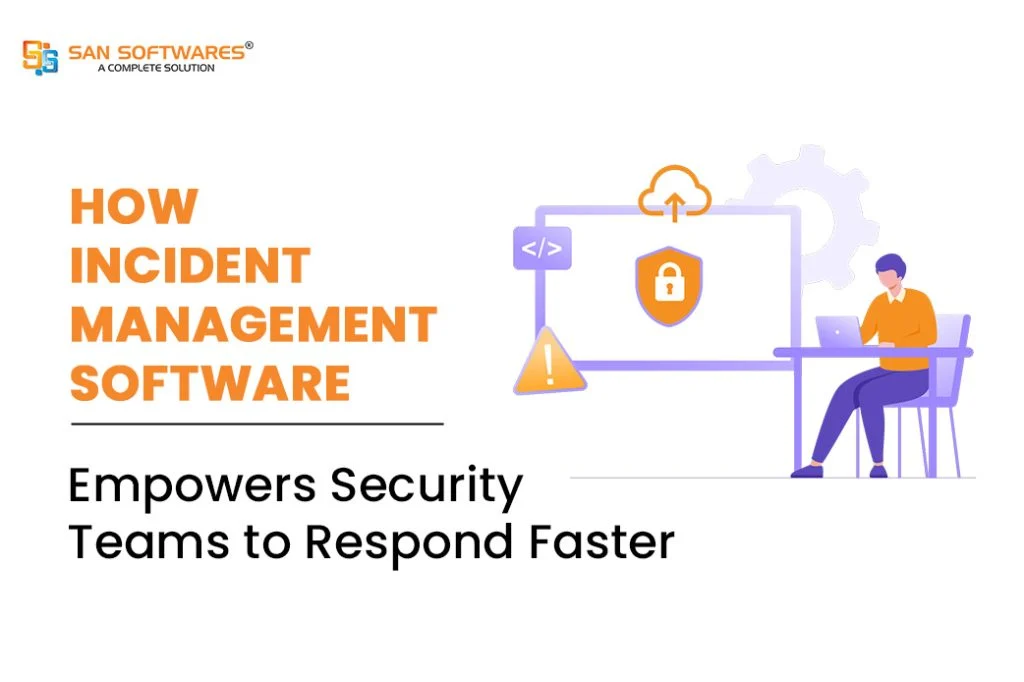
Incident management software (IMS) helps security teams handle and fix unexpected service interruptions. It can automate tasks such as recording, monitoring, and prioritizing incidents, and it can also give useful information to enhance IT service management.
In today’s digital landscape, businesses face hundreds of challenges and uncertainties affecting their operations, from cyberattacks to physical security breaches. The key to solving these challenges is not just skilled professionals, but equipping the right tools that work instantly. How about you enter Incident Management Software? This technological game-changer empowers security teams to respond more quickly and enhance productivity.
But what makes it help organizations to identify, address, and resolve issues, in no time? When integrated with a ticket management system, it streamlines issue tracking, priortization, and resolution for seamless operation.
Let’s take a look at this blog.
Incident management software (IMS) is an essential tool that assists businesses in efficiently managing and resolving incidents. From detecting security breaches to resolving issues, this software centralizes every step of the incident response process. Unlike manual workflows that can lead to confusion and delays, this software automates critical tasks, enabling faster response time and reducing potential damages.
For example, if any cybersecurity breach occurs, this software can immediately:
A Ticket Management System plays an important role in IMS. It converts incidents to top-most priority tickets, providing structure and traceability to every issue. Let’s see how it works:
Organizations can effectively minimize downtime by facilitating faster response times, thereby conserving both time and financial resources. Industry research indicates that an hour of downtime can incur significant costs, potentially amounting to thousands of dollars—a risk that is untenable for any business.
The prompt and effective resolution of incidents fosters customer trust. Whether addressing a security breach or a service outage, swift action illustrates reliability and strengthens customer confidence.
Numerous industries impose stringent requirements for incident reporting. Incident management software plays a vital role in ensuring compliance by maintaining comprehensive logs and producing accurate reports.
By optimizing workflows and automating routine tasks, this software allows your team to redirect their efforts toward strategic initiatives rather than merely addressing immediate crises.
Consider a large e-commerce platform that experienced a major cybersecurity breach. Before implementing incident management software, the security team took hours to detect the issue and even longer to resolve it, resulting in lost revenue and a damaged reputation.
After deploying the software, a similar breach occurred months later. This time, the system detected the anomaly within minutes, alerted the team, and initiated a predefined response plan. The issue was resolved within an hour, with minimal impact on operations. The difference? A robust incident management and Ticketing System.
When selecting software, consider these factors:
Incident management software is a comprehensive platform which is designed for organizations that handle unexpected events. From detecting oddities to resolving issues, this tool centralizes every step of the incident response process. By pairing them pairing it with an effective ticket management system, you can boost your security team’s efficiency to maintain customer trust. In the era where every second counts, this technology is a competitive edge to your business needs.
Are you ready to revolutionize your incident response strategy? The right software can make all the difference – your security team (and bottom line) will thank you for it.
It is a specialized tool designed to help organizations effectively identify, document, manage, and resolve incidents. Such incidents may encompass a variety of issues, including IT challenges, cybersecurity threats, workplace accidents, natural disasters, and customer complaints. The software facilitates prompt resolution, reduces disruptions, and assists organizations in efficiently resuming normal operations.
Yes, IMS is similar to a Ticket Management System in that both handle tracking and resolving issues. However, IMS focuses more broadly on managing incidents across various domains (e.g., IT, safety, emergencies), while Ticket Management Systems are typically used for customer support or IT service requests, with an emphasis on ticket workflows.
The Main benefits of IMS
SAN Softwares is a company dedicated to providing complete software solutions to Corporate and end-user customers.

SAN Softwares is a company dedicated to providing complete software solutions to Corporate and end-user customers.

© 2026 SAN Softwares Pvt Ltd | All Right Reserved
Enter your details to receive an OTP